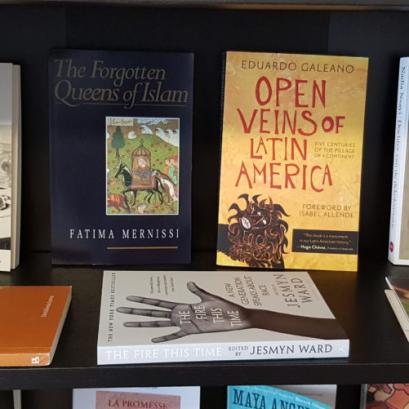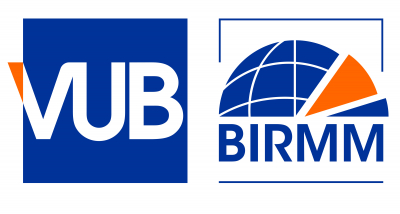
This BIRMM Spotlight is about the Blueprint study for a Master in Critical Liberation/Ethnic Studies. Latifah Abdou and Tundé Adefioye tell us all about the project. Read the interview here.
Can you introduce yourself?
I am Latifah, project manager of a UCOS project called WeDecolonizeVUB which is centered around decolonizing the VUB and addresses the Eurocentric character of knowledge that the students may have which is upheld by the university. On the other hand, we try to create a safe space at the university for racialized students. This means that we give them the opportunity to organize things or events themselves. Through WeDecolonizeVUB I also help with the research around critical ethnic studies.
I am Tundé, I am currently a lecturer in Antwerp at Sint Lucas and lecture on US popular visual culture and cultural criticism. Next to that I’m also an independent researcher and researching the possibility/necessity of setting up a critical liberation/ethnic studies master’s with an institution such as the VUB. While maintaining a crucial community element.
What is this project about?
This project looks at how we can create a master program that starts from the notion that racialized and marginalized people's lives are not sufficiently archived within Belgium's society. This project also wants to take into account the structures that already exist and look at them from a critical perspective while creating safer spaces where people’s lives and stories can be archived and used in a way to function as a decolonial tool to challenge the way we see structures.
Next to that, this project also wants to find out what a critical liberation/ethnic studies master would look like with an institution such as the VUB while rooting it within communities outside of VUB, in a truly decolonized way.
Why is doing research so important?
Doing research is important because there is already a lot that has been done around the topic, and so much that we can learn from. We don’t want to start with the notion that we know it all because we don’t. By using the rich possibility of knowledge that is out there it will only make our work stronger.
Since the students are important stakeholders, this project tries to have a bottom up approach meaning that the students’ input is crucial in finding out what this master program would mean to them and how it could be organized. This is why we are currently organizing focus groups and conducting interviews with students.
What are the objectives for this project?
This project’s ultimate objective would be to create a critical ethnic studies master program. However, a short-term objective would be to create for example modules and courses within already existing master programs centered around a decolonial approach in creating knowledge. We believe that by working with short-term goals, we can stay productive and work towards our bigger goals.
How will these objectives be realized?
Hopefully these objectives will be realized through allies within our partner institutions. As mentioned before there might already be knowledge available around this topic or other people doing similar work as us, which is why we find it important to connect finding synergies with people who are already doing this work and link their knowledge to this project. Important to note, however, is that this work is often not possible without funding, which is why we will look for funding outside of the university in order to realize the master.
Can you tell us who the partners involved are, and how they will contribute to this project?
There are different partners for this project such as UCOS, WeDecolonizeVUB, BCUS, RHEA and BIRMM. Next to these institutional allies we also have individual partners inside and outside of the VUB, like professors who play a role in this research project. Our partnerships are therefore on many different levels because we believe that having a diverse input will be the best way for us to reach our goals. Lastly, a fundamentally important partner are of course the students, who will play an important role in shaping what this project will look like.
To learn more about this project and its outcomes, please contact Tundé Adefioye (tundeadefioye@yahoo.com)
This project has been awarded research funding by BCUS, and is co-funded by BIRMM and RHEA-Fatima Mernissi Chair.
Watch the full interview with Latifah Abdou and Tundé Adefioye
